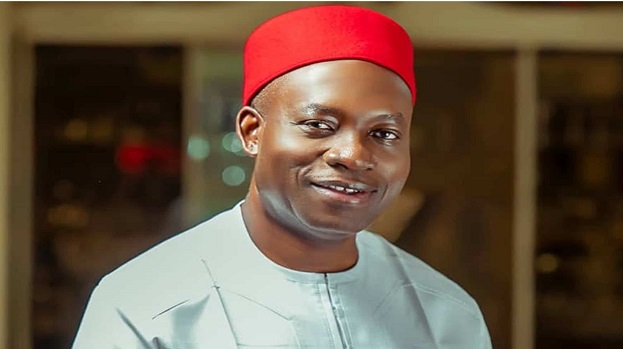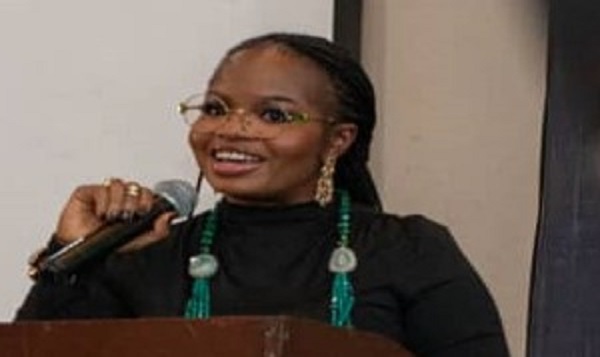News
IFC, Partners Support BUA with $500M Facility to Boost Industrialization, Jobs in Nigeria and Sahel

IFC yesterday made its largest-ever investment in northern Nigeria, providing a financing package alongside African and European partners to BUA Cement Plc to help the company part-finance and develop two new, energy-efficient cement production lines that will create up to 12,000 direct and indirect jobs.

IFC’s $500 million financing package includes a $160.5 million loan from IFC’s own account, a $94.5 million loan through the Managed Co-Lending Portfolio Program (MCPP), and $245 million in parallel loans from syndication partners; the African Development Bank (AfDB) – $100 million, the Africa Finance Corporation (AFC) – $100 million, and the German Investment Corporation, Deutsche Investitions- und Entwicklungsgesellschaft (DEG) – $45 million.
The financing, announced during the Africa CEO Forum in Abidjan, Cote d’Ivoire, will allow BUA, Nigeria’s second largest cement producer, to develop new production lines in northern Nigeria’s Sokoto State.
The plants will run partly on alternative fuels derived from waste and solar power. Each will produce about three million tons of cement annually when complete, serving markets in Nigeria, Niger, and Burkina Faso.
Investing in northern Nigeria is integral to IFC’s strategy to promote sustainable development in underserved regions. This includes areas with limited opportunities and a need for increased private sector engagement. The new plants will provide local developers with a reliable and affordable source of cement, and bolster the construction of essential infrastructure, fostering economic growth and prosperity for the region.
The project is expected to create about 1,000 direct jobs and 10,800 indirect jobs. Direct jobs include those in manufacturing, engineering, and advanced automation systems. Indirect jobs include those in the cleaning, maintenance, mining, and transportation sectors.
“BUA is delighted to partner with IFC and other esteemed institutions in securing this $500 million facility to develop energy-efficient cement production capacity and strengthen our equipment and logistics capabilities in northern Nigeria.
“In line with our commitment to sustainability and ESG principles, this investment will create jobs and contribute to economic and infrastructural development within Nigeria and the greater Sahel region.
“We are particularly pleased to have successfully gone through the rigorous process with IFC, AfDB, AFC, and DEG, which validates our responsible business practices. By focusing on greener fuels and enhancing our equipment and logistics platform, BUA Cement is building a foundation for sustainable infrastructure growth and a more inclusive society,” said Abdul Samad Rabiu, Chairman and Founder of BUA Group.
“We are pleased to join with our partners to support BUA with an investment that will boost industrialization, create jobs and deliver economic growth in northern Nigeria, a region with significant economic potential,” said Makhtar Diop, IFC’s Managing Director.
The financing package announced by IFC and its partners will also allow BUA to replace some of its diesel trucks with vehicles that are run partly on natural gas, over time producing fewer emissions.
As part of the project, IFC will also advise BUA on developing a gender inclusive workplace strategy that creates more opportunities for women across its operations.
“Following an initial $200 million investment in BUA Group in 2021, we are proud to play another key role in this landmark manufacturing project set to transform the construction sector in northern Nigeria and the entire country.
By investing in this project, we are sustainably building Nigeria’s local manufacturing capacity, empowering local communities and creating employment opportunities. AFC is committed to working with our partners to accelerate development impact through infrastructure solutions that support value addition, industrialization, and job creation throughout Africa,” said Samaila Zubairu, CEO & President of Africa Finance Corporation (AFC).
“The African Development Bank is pleased to be partnering with IFC and BUA on this expansion project as it is aligned with our priority strategies of industrializing Africa and improving the quality of lives of Africans through the increase in cement production which will lead to the development of additional affordable housing and critical infrastructure in Nigeria and neighboring West African countries, while supporting the use of cleaner energy at BUA’s Sokoto facility” said Solomon Quaynor, Vice President – Private Sector, Infrastructure and Industrialization of African Development Bank (AfDB).
“DEG’s mission is to be a reliable partner to private sector enterprises as drivers of development and creators of qualified jobs. We are pleased to contribute to this transaction together with our development finance partner institutions.
Together we support BUA in its transformation towards a more sustainable production by implementing innovative technology. The significant reduction of CO2 emissions and the creation of decent jobs in a region with many vulnerable households are key factors for DEG’s financing,” said Gunnar Stork, Senior Director at DEG.
The investment in BUA is part of IFC’s strategy to promote diversified, inclusive growth and job creation in Nigeria, where IFC supports the manufacturing agribusiness, healthcare, infrastructure, technology, and financial services sectors. IFC has an active investment portfolio of $2.3 billion in Nigeria.
News
Anambra Cuts Monday Pay to Kill Sit-at-Home

Anambra State will implement pro-rata salary payments for civil servants starting February 2026, targeting chronic Monday absenteeism from the long-running sit-at-home order, Information Commissioner Dr. Law Mefor announced Saturday.

Soludo
Speaking at an Awka briefing after the Executive Council’s end-of-tenure retreat, Mefor said improved security and transport have eliminated excuses for the four-year disruption, which cost the state trillions in lost revenue. “Workers enjoyed full pay despite staying away; now, no work means no pay for that day, calculated over 24 working days,” he stated.
Compliance measures include mandatory Monday clock-in forms, with markets urged to reopen fully amid bolstered security. This builds on a January 22 executive order docking 20% pay from teachers absent on Mondays.
Mefor warned that lost Mondays cripple revenue collection and productivity, rejecting alternatives like Saturday shifts as capitulation to agitators.
News
Stakeholders Demand Stronger Governance and Infrastructure to Drive Tech Adoption @ Lagos AI Summit

As AI adoption accelerates across Nigeria, leaders at the “AI in Action Now” conference 2026 have called for a balance between rapid innovation and strict regulatory governance. The event, held at the Lagos Oriental Hotel, highlighted both the doggedness of Nigerian builders and the risks of unregulated data usage.

Dotun Adeoye, Co-Founder of AI Nigeria, raised alarms over “Shadow AI”, a trend where employees upload sensitive official documents to public AI platforms. He praised the Nigerian Data Protection Commission (NDPC) for its recent aggressive stance, including multi-million-dollar fines against major banks and social media brands.
“Innovation without governance is dangerous. The regulator now has the job of educating players. We are working in partnership with them to ensure players don’t just get fined, but actually understand how to protect data locally rather than storing it abroad, ” Adeoye noted.
Addressing issues of lack of infrastructure to carry AI adoption, Conference Convener Debola Ibiyode admitted that while Nigeria lacks the traditional foundation for AI adoption, the tech community cannot afford to wait.

“The simple answer is we don’t have the infrastructure, but Nigeria has never really had infrastructure to drive anything, and we still thrive, ” Iboyode said, encouraging students and builders to look beyond current limitations. “Once we start to build based on what we have now, it will encourage those who need to provide the infrastructure to do their part. The world will not wait for us,” she insisted.
To bridge this gap, she highlighted the AI Foundry Africa, an incubator designed to mentor ideas into market-ready products.
Meanwhile, speaking to journalists on the sidelines, Biodun Ogunleye, the Lagos State Commissioner of Energy and Mineral Resources, echoed the sentiment that the government’s role is to facilitate the right environment through partnership. He emphasized that data generated from interactions with the government must have long-term value.
“We must ensure that in all facets from production to interaction with government, the tools required to ensure data has value are appreciated,” Ogunleye stated.
He concluded that through private-sector collaboration, the government can focus on its primary functions while leveraging AI to ensure the nation aspires for the future.
News
35 Million Nigerians Face Acute Hunger in 2026, UN Warns

About 35 million Nigerians face acute hunger risks in 2026, including three million children battling severe malnutrition, the United Nations has warned, attributing the crisis to collapsing global aid budgets and escalating violence in the northeast.

UN Resident and Humanitarian Coordinator Mohamed Malick Fall disclosed this on Thursday during the launch of the 2026 humanitarian plan in Abuja, noting that the traditional foreign-led aid model proves unsustainable amid Nigeria’s escalating needs.
He highlighted dire conditions in Borno, Adamawa and Yobe states, where over 4,000 people perished in the first eight months of 2025 from surging suicide bombings and attacks—equalling the entire previous year’s toll.
The UN now targets $516 million to deliver lifesaving aid to 2.5 million people this year, a sharp drop from 3.6 million in 2025 and half of prior levels, forcing prioritisation of only the most critical interventions.
Fall stressed, “These are not statistics. These numbers represent lives, futures and Nigerians,” as shortfalls last year compelled the World Food Programme to halt support for over 300,000 children after resources dried up in December.
Yet, Fall acknowledged Nigeria’s increasing national ownership, including local funding for lean-season food assistance and proactive flood early-warning systems, signalling a shift toward self-reliant crisis response.

 E-Financial3 days ago
E-Financial3 days agoZenith Bank Gets Regulatory Approval for Full Takeover of Paramount Bank

 Telecom3 days ago
Telecom3 days agoNew Investment Fund Targets Acceleration of Emerging Technology in Nigeria

 E-Business3 days ago
E-Business3 days agoFirm Detected a Fivefold Surge in QR Code Phishing Attacks in the Second Half of 2025

 News3 days ago
News3 days agoNITDA Commits to Digital Inclusion for Persons with Disabilities

 General News2 days ago
General News2 days agoPalmPay User Shares Experience on Fintech Apps to Trust in Nigeria

 News2 days ago
News2 days agoStakeholders Demand Stronger Governance and Infrastructure to Drive Tech Adoption @ Lagos AI Summit

 General News2 days ago
General News2 days agoNigerians Target Self-Improvement, Business Startups in 2026 Google Data

 General News2 days ago
General News2 days agoHow Inside Jobs and Policy Shocks Trigger Nigeria’s Rising Loan Crisis

























